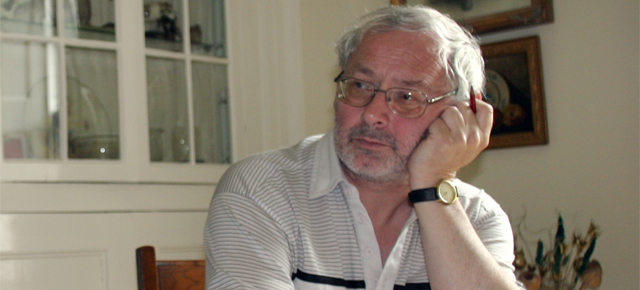Former Stagecoach director was ‘one of the good guys’

Former colleagues of Brian Cox have paid tribute to the former Stagecoach Group director, who died suddenly from a heart attack earlier this month.
Cox, who joined Stagecoach in 1987 from the Scottish Bus Group, spearheaded the company’s move into rail with the successful bid for the initial South West Trains franchise and was chairman and managing director of South West Trains from 1996 to 1998. He became executive director of Stagecoach UK Bus in July 2000, where he led the reorganisation of UK Bus into 12 companies and the rebranding of the UK fleet.
With over 30 years’ public transport experience before his retirement in 2002, Cox was one of the few people to have worked in both buses and trains under nationalised and privatised regimes.
Stagecoach owes a lot to Brian Cox
Commenting at the the time of Cox’s retirement, Stagecoach co-founder Brian Souter said: “Stagecoach owes a lot to Brian Cox, who has made a huge contribution both at South West Trains and in heading up our UK Bus division.
‘One of the good guys’
Describing him as “one of the good guys”, former colleagues of Brian Cox have put together the following summary of his illustrious career.
After graduating in Geography at Manchester University in 1968 (where he had met his life partner and wife Anne), Cox started his career in transport in 1968 as a management trainee at British Rail, based at Marylebone. After six years with BR, which included a spell on secondment in Yugoslavia, he moved to public transport policy at Bedfordshire County Council, before joining Cambridgeshire as county transport co-ordination officer where he established a close working relationship with the local national bus company management, some of which lasted throughout his life.
In 1979 he was recruited by the Scottish Bus Group as planning and development director at its Alexander’s Midland subsidiary in Falkirk. He led the company’s Market Analysis Project (SCOTMAP) and the group’s first SCOTMAP scheme to be implemented, Cumbernauld, with its groundbreaking all-day express services, was a dramatic foretaste of the radical, innovative style which was to be Brian’s hallmark. From the outset, he was determined to shift the focus from production to customers’ needs.
After moving to Edinburgh as group planning manager at the SBG’s Carron House headquarters, he was appointed general manager at Kelvin Scottish, one of the new companies set up ahead of local bus deregulation with the aim of achieving greater focus on the Glasgow market. Under Cox’s leadership, Kelvin broke new ground, bringing a range of new ideas to Glasgow, with a striking livery which raised eyebrows at the ultra-conservative Carron House. Over 60 minibuses on high frequency routes within Glasgow were complemented by a similar number of former London Routemasters running every five minutes between Easterhouse and Clydebank. To achieve greater accessibility for passengers, Leyland Nationals ousted high floor single deckers on other routes, while coach seated Metrobuses delivered a new standard of comfort on the commuter routes to Cumbernauld.
Cox inspired a new generation of managers in his time at Kelvin, amongst them his operations director, John Elliot, his marketing manager, Nigel Serafini, his commercial director, Bill Campbell, and management trainee Robert Andrew, all of whom went on to senior roles in the Scottish and UK bus industry.
Cox’s infectious determination could lead to frustration. During a period when Kelvin was falling short in ensuring destination equipment was in full working order – a deficiency which too often undermined delivery of its superbly designed network – Cox stormed around the office slamming unlabelled tins on everyone’s desk with the challenge “would you buy that?”. Collleagues got the message that a bus without a destination display might as well never have left the depot. Many of them kept the tins on their desks as a reminder.
After a spell as general manager at Scottish Citylink Coaches, Cox was enticed by the innovative culture at Brian Souter and Ann Gloag’s emerging Stagecoach company, depriving the SBG of one of its brightest stars. In making this move Cox became the first senior bus industry executive to voluntarily join the fledgling company, to be closely followed by two more of SBG’s brightest and best, George Watson and Neil Renilson.
His early time at Stagecoach with Souter and Gloag took him to their new companies in Malawi and Kenya, while closer to home he played a key role in the company’s first venture into UK rail, when Stagecoach stripes appeared on coaches on overnight trains between Scotland and London. In 1989 he became managing director of Stagecoach South, returning to rail to head up South West Trains in the early years of the Stagecoach franchise. Shortly after in 2002 he became Stagecoach’s director of UK Bus.
In many ways he played an invaluable role in helping shape the growing Stagecoach business, acting to distill some of Brian Souter’s visions, refining and developing the best prospects and side lining other less promising opportunities
Throughout his time at Stagecoach Cox was closely involved in evaluating possible new ventures and acquisitions, taking him all over the world, including schemes such as guided busways in Columbia. In many ways he played an invaluable role in helping shape the growing Stagecoach business, acting to distill some of Brian Souter’s visions, refining and developing the best prospects and side lining other less promising opportunities.
Having retired from the Stagecoach main board in 2002, Cox became a non-executive director of Lothian Buses during Neil Renilson’s tenure as chief executive. At the same time he became a director of tie, the company set up by the City of Edinburgh Council to deliver its tram project. He discharged his responsibilities as a non-executive director as the epitome of the critical friend. Never would he say something was good if he believed it wasn’t, but when he believed in something his support was unwavering.
Whilst with Lothian Cox also took on a board role with Peter Huntley’s TAS consultancy, and enjoyed the intellectual challenge of the many issues handled.
Bearded and softly spoken, Cox was gifted with a fierce intellect. That others were usually less gifted did not stop him from expecting the same acuity from them. In this way he was able to draw more from people than they probably expected to achieve themselves. He had little time for intellectual laziness and believed in seeing things in simple terms. Like a mathematician reducing a complex formula to its simplest expression he would cut through complexity to get to the key things that really mattered. It was the cake that interested him not the icing and he reserved special disdain for those who fiddled with the icing when there was no cake: not for Cox presentation without substance.
He will be warmly remembered for his individuality, inspiration, innovation, and intellect
For those who owe their careers to Brian Cox and by many others of his colleagues, “he will be warmly remembered for his individuality, inspiration, innovation, and intellect. It is no wonder that he earned their intense and enduring loyalty.”
Cox’s funeral took place in Dumfries on January 18.







